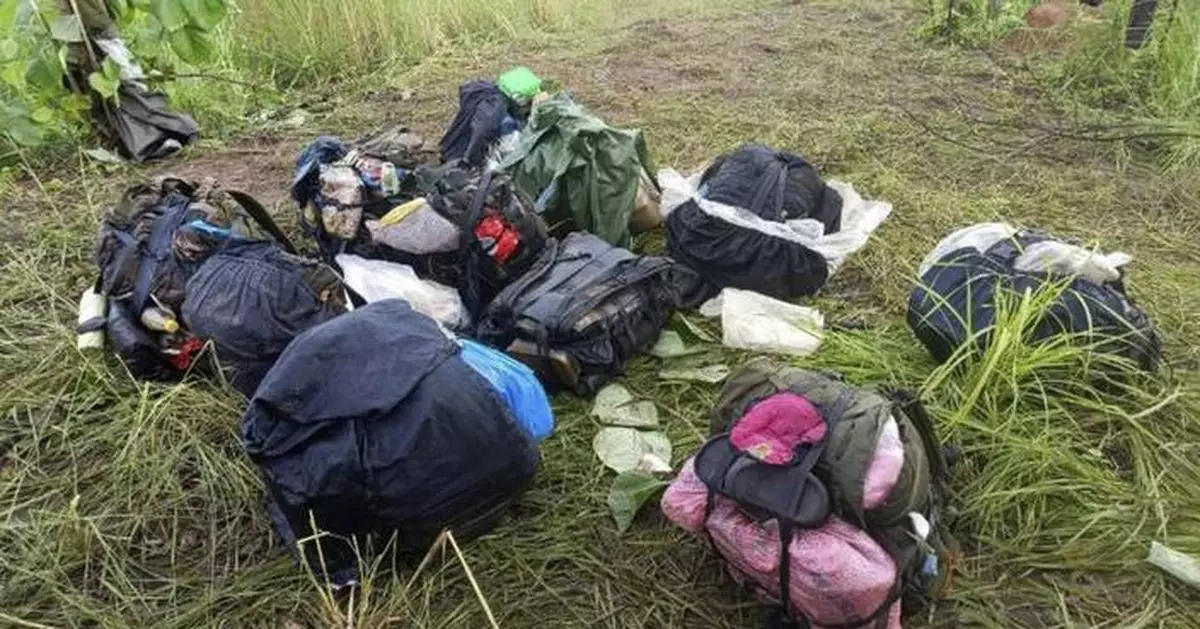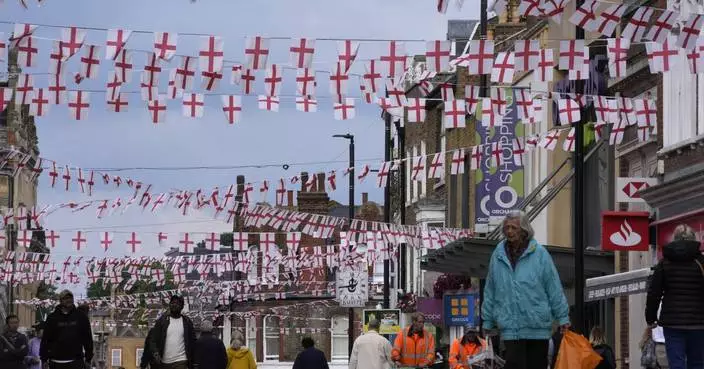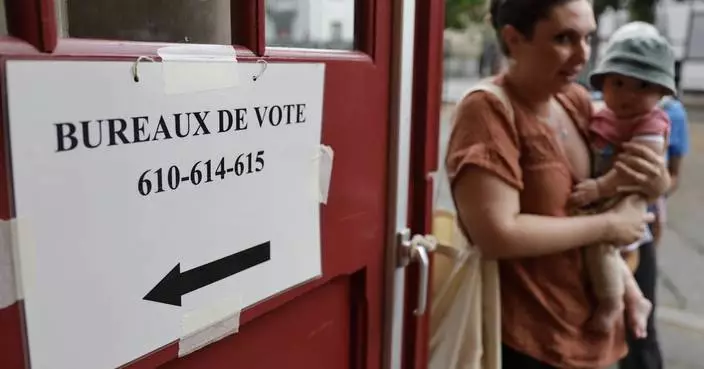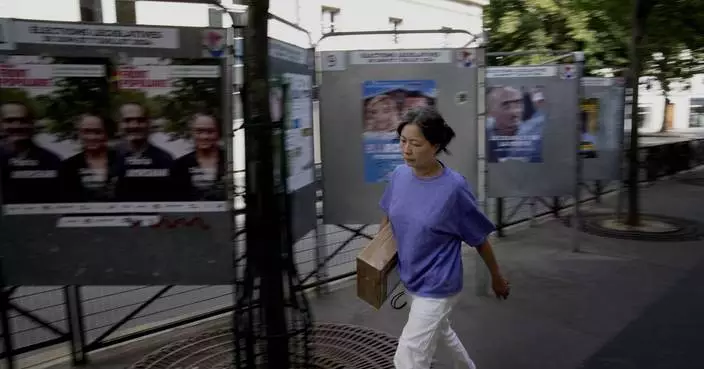MANILA, Philippines (AP) — Philippine troops killed at least 10 suspected communist guerrillas in a clash in a remote northern area in the latest blow to a decades-old insurgency that has weakened considerably, with only about a thousand guerrillas remaining, military and security officials said Friday.
Army troops caught up with about 20 New People’s Army guerrillas who were withdrawing from an earlier clash with government forces last week, sparking a firefight Wednesday that killed 10 rebels, including three commanders, near a village in Pantabangan town in Nueva Ecija province, the army said.
Thirteen rifles and a pistol were recovered from the area of the fighting, which was near a key dam, it said. Troops were pursuing about 10 other guerrillas who withdrew from the remote area, regional army spokesperson Maj. Jimson Masangkay said by telephone.
Brig. Gen. Norwin Joseph Pasamonte, an army infantry brigade commander, commended the troops but expressed sadness over the rebel deaths. “The government did not fail in appealing to them to surrender and return to normal life,” Pasamonte said in a statement, adding that the deaths should help convince the remaining guerrillas to give up.
Nueva Ecija, a rice-growing region in the north, used to be a hotbed of the communist insurgency decades ago, but less than 50 Maoist guerrillas remain in the area, Masangkay said.
Last November, the government and the communist rebels agreed to resume talks aimed at ending the armed insurgency, one of Asia’s longest, after meeting in the Norwegian capital of Oslo to address key obstacles to intermittent peace negotiations, according to Norwegian mediators.
Actual peace talks, however, have not restarted under President Ferdinand Marcos Jr.
Philippine officials say about 1,000 communist fighters remain after years of rebel setbacks, surrenders and factionalism. Peace talks brokered by Norway collapsed under previous President Rodrigo Duterte after both sides accused the other of continuing deadly attacks despite the negotiations.
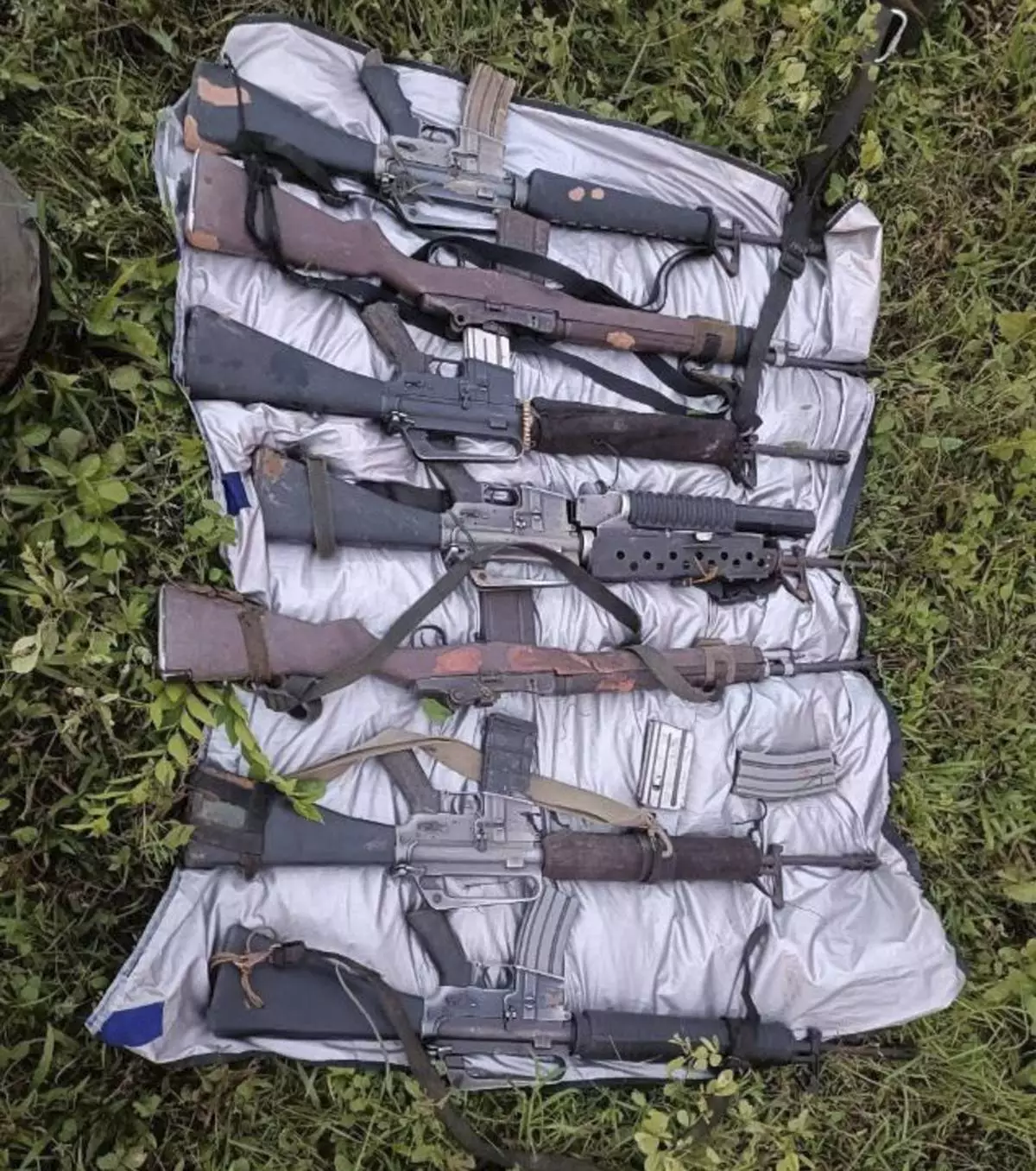
In this handout photo provided by the Armed Forces of the Philippines Public Affairs Office, guns recovered from suspected communist rebels are placed together after an encounter with Philippine troops near a village in Pantabangan town in Nueva Ecija province, Philippines Wednesday June 26, 2024. Philippine troops killed serveral suspected communist guerrillas in a clash in a remote northern area in the latest blow to a decades-old insurgency that has weakened considerably, with only about a thousand guerrillas remaining, military and security officials said Friday. (Armed Forces of the Philippines Public Affairs Office via AP)
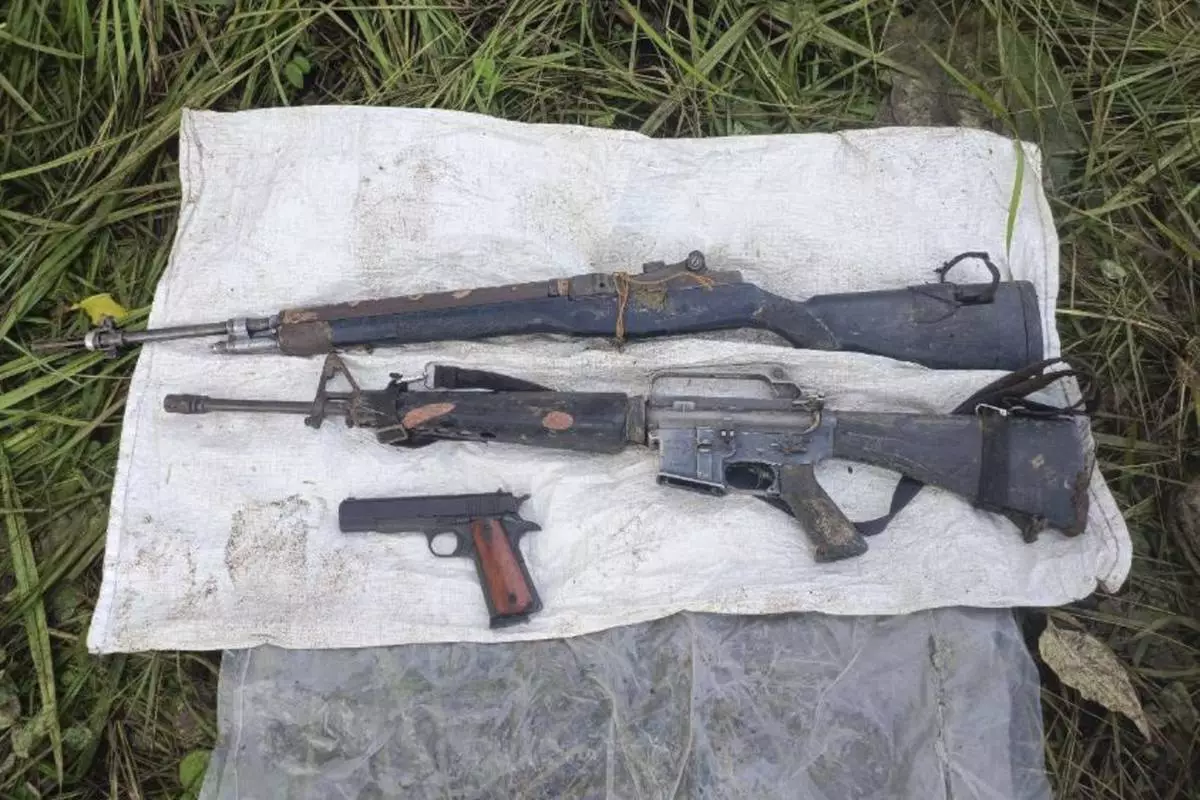
In this handout photo provided by the Armed Forces of the Philippines Public Affairs Office, guns recovered from suspected communist rebels are placed together after an encounter with Philippine troops near a village in Pantabangan town in Nueva Ecija province, Philippines Wednesday June 26, 2024. Philippine troops killed several suspected communist guerrillas in a clash in a remote northern area in the latest blow to a decades-old insurgency that has weakened considerably, with only about a thousand guerrillas remaining, military and security officials said Friday. (Armed Forces of the Philippines Public Affairs Office via AP)
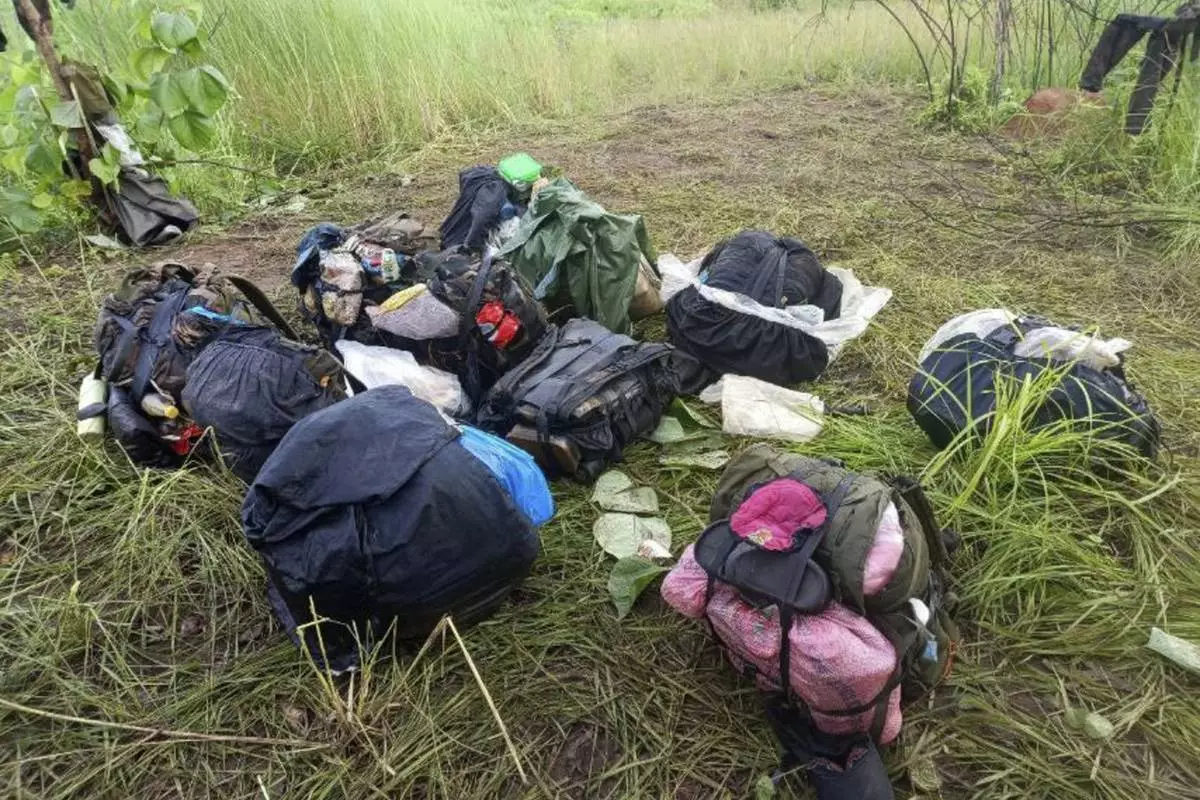
In this handout photo provided by the Armed Forces of the Philippines Public Affairs Office, bags from suspected communist rebels are placed together after an encounter with Philippine troops near a village in Pantabangan town in Nueva Ecija province, Philippines Wednesday June 26, 2024. Philippine troops killed several suspected communist guerrillas in a clash in a remote northern area in the latest blow to a decades-old insurgency that has weakened considerably, with only about a thousand guerrillas remaining, military and security officials said Friday, June 28. (Armed Forces of the Philippines Public Affairs Office via AP)
DARTFORD, England (AP) — Distrust has settled over the campaign trails in the United States and United Kingdom ahead of July 4 like a soggy summer haze.
On that day, British voters will choose a new Parliament in an election expected to finish with a Labour government after 14 years under the Conservatives. Americans, polarized by the rematch between Democratic President Joe Biden and Republican Donald Trump, will mark Independence Day in something resembling unity with barbecues and fireworks ahead of their vote on Nov. 5.
There’s much to celebrate on the Fourth of July for one of the world’s biggest democracies and the venerable kingdom that gave rise to it, 248 years after they split and set off on slow, troubled journeys toward granting all citizens the right to vote. Both remain rooted in the Magna Carta, the English document signed in 1215. It set in writing the idea that leaders — including kings, presidents and their governments — are not above the law. The nations have become close friends and stalwart allies.
That’s how it started.
As for how it’s going, the run-up to July 4, 2024 — Independence Day for one land, Election Day for the other — offers a snapshot of the stress test facing voters in each country.
“I’m just very disheartened, really, because I don’t think any of the parties know what they’re doing,” Dartford, England, resident Jacqueline Richards, 77, said of her country’s election. “But then looking at yours in America, it’s not that great, is it?”
Every democratic election is, at its core, about who voters trust to run their country so they can go about running their lives.
Debates are candidate aptitude tests in real time. Thursday's showdown between Biden, 81, and Trump, 77, proved a stark example. Biden’s halting performance did the opposite of building confidence, even among some of his supporters. Trump, meanwhile, repeated his lies about the Jan. 6, 2021, insurrection and his record as president.
That’s only the most recent example of why distrust and resignation dominate the emotional landscape in both countries, according to voters interviewed by The Associated Press in recent weeks. From battleground Wisconsin to bellwether Dartford, voters said years of misinformation, scandal and lies have drained them of the sort of optimism or excitement they might once have felt about the right to vote or the future.
In Britain, 45% said they “almost never” trust governments to put the nation’s interest first, up from 34% in 2019, according to a survey published June 12 by the National Centre for Social Research. The pandemic, the Russia-Ukraine War and the country’s cost-of-living crisis affected living standards and the economy, it reported. Two Tory prime ministers were ousted. Also, there was Boris Johnson, who resigned rather than be thrown out of Parliament over boozy parties at 10 Downing Street when the nation was under COVID-19 lockdown.
“They promise and promise and promise and nothing ever changes,” said Shane Bassett, 34, the bar manager at a pub in Dartford, where the Peasants’ Revolt of 1381 is said to have started. “No matter who gets in — if it’s Labour, if it’s Conservative, it’s all the same. They all lie.”
In the United States, trust has been eroded by deepening political polarization, misinformation and Trump’s lies about Biden’s victory in the 2020 election — all amplified by social media.
Roughly 2 in 10 Americans say they trust the U.S. government to do what is right “just about always” or “most of the time,” according to a recent Pew Research Center survey. About 6 in 10 say they can trust the government “only some of the time” and about 2 in 10 say they can never trust the government to do what’s right.
Nearly three-quarters of American adults blame the news media for dividing the nation, according to a 2023 poll by AP-NORC. Families and friends have learned to avoid discussing politics around Thanksgiving tables and other gatherings. In many places, even celebrations of the Fourth of July — a national holiday when Americans mark the 1776 ratification of the Declaration of Independence from Britain — fall under this practice of restraint.
In Racine, Wisconsin, Rebecca Eisel, 48, wondered how the vast United States, home of 262 million eligible voters and the world’s biggest economy, faces a rematch that few Americans wanted.
“How did our democratic process result in something that the majority of the population doesn’t like?” said Eisel, 48.
The last time Kathleen Barker, 64, was excited about a candidate, it was Ronald Reagan, who went on to serve two terms in the 1980s and exited office by referring to the country as a “shining city on a hill.”
“You could relate to him," she said while walking her dog near the river in Racine. "He felt like just that average man.”
Now she says, the “nasty back and forth” between Biden and Trump — who each insist the other is unfit for office — suggest neither can be trusted to dig into the major problems facing the United States.
“People are poor. The country is struggling. And this is their focus?” she said.
Emmanuel McKinstry, a 58-year-old businessperson, voiced similar frustration. The economy, he said while waiting in line to hear Trump speak in Racine, is his top issue. The next morning, McKinstry said he’d still vote for Trump — with reservations.
“I’m tired of politicians working for themselves and not really getting down and asking people what we really want,” McKinstry said. “We’re putting you in office. What are you gonna do for us?”
In Britain, the distrust is less personal. It’s about scandal — think Johnson and “partygate” — and the cost-of-living crisis.
That’s what concerns Bassett, the manager at the Wat Tyler Pub. You’re not supposed to talk about politics in British pubs, he says — the counterpart, perhaps, of the American reluctance to stir up trouble on the same topic at parties.
But Bassett looked around at the empty dining room at lunch time. There were no customers to offend. So he let it fly.
The pub’s energy bill last winter jumped from its usual 800 pounds a month (about $1,000) to 1,200 pounds (about $1,500). It has struggled since the Christmas season to bring in customers for a beer. He thinks the owners are likely to sell the place only four years after buying it.
“I’m not very optimistic," he said. “If I could leave the country, I would.”
Fernando reported from Racine, Wisconsin. AP writer Jill Lawless contributed from London.
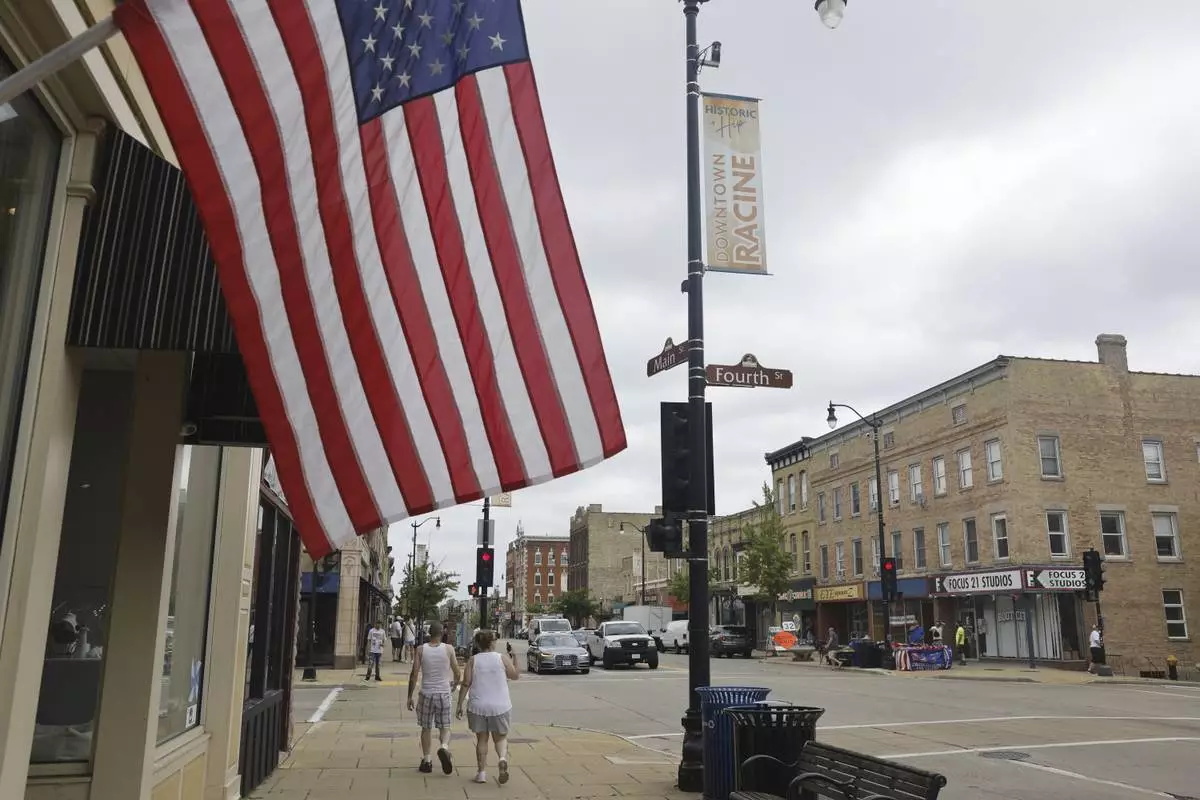
A general view of downtown Racine Tuesday, June 18, 2024, in Racine, Wis. (AP Photo/Jeffrey Phelps)
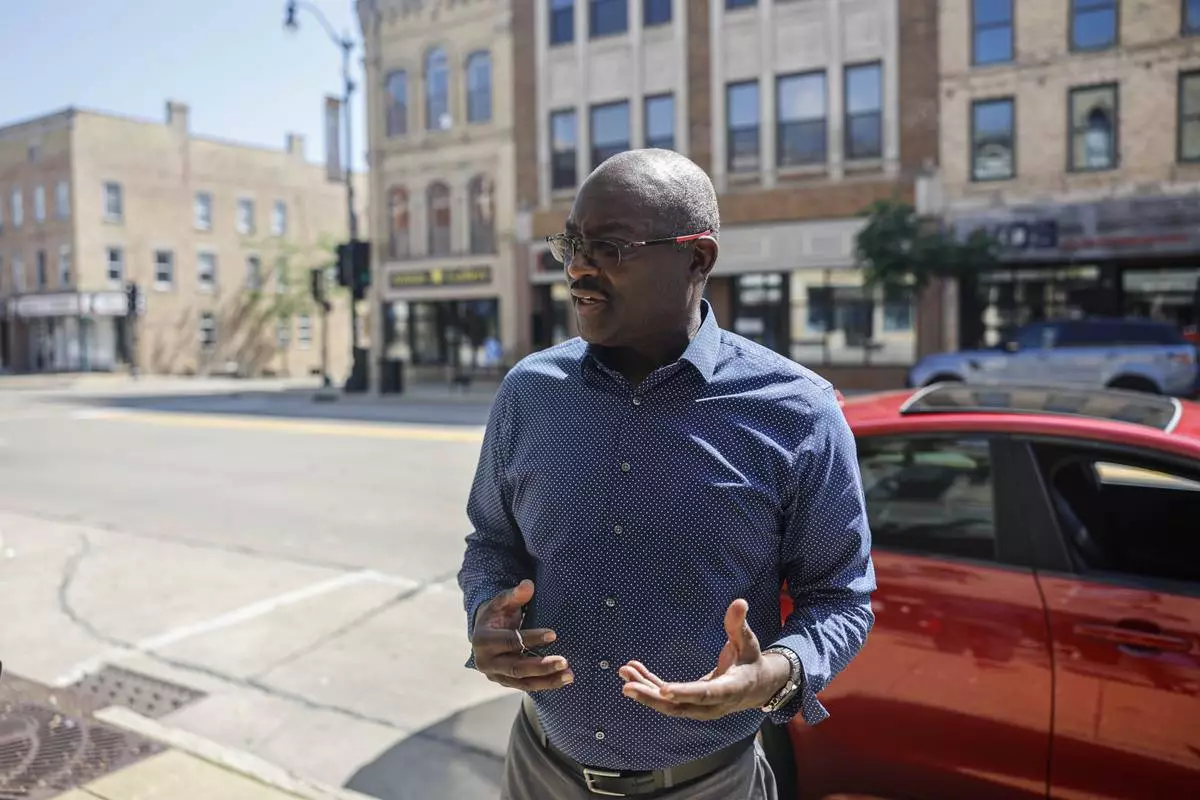
Emmanuel McKinstry speaks about the upcoming election Wednesday, June 19, 2024, in downtown Racine, Wis. (AP Photo/Jeffrey Phelps)

Robin Mitchell sitting outside a business speaks about the upcoming election Wednesday, June 19, 2024, in Racine, Wis. (AP Photo/Jeffrey Phelps)
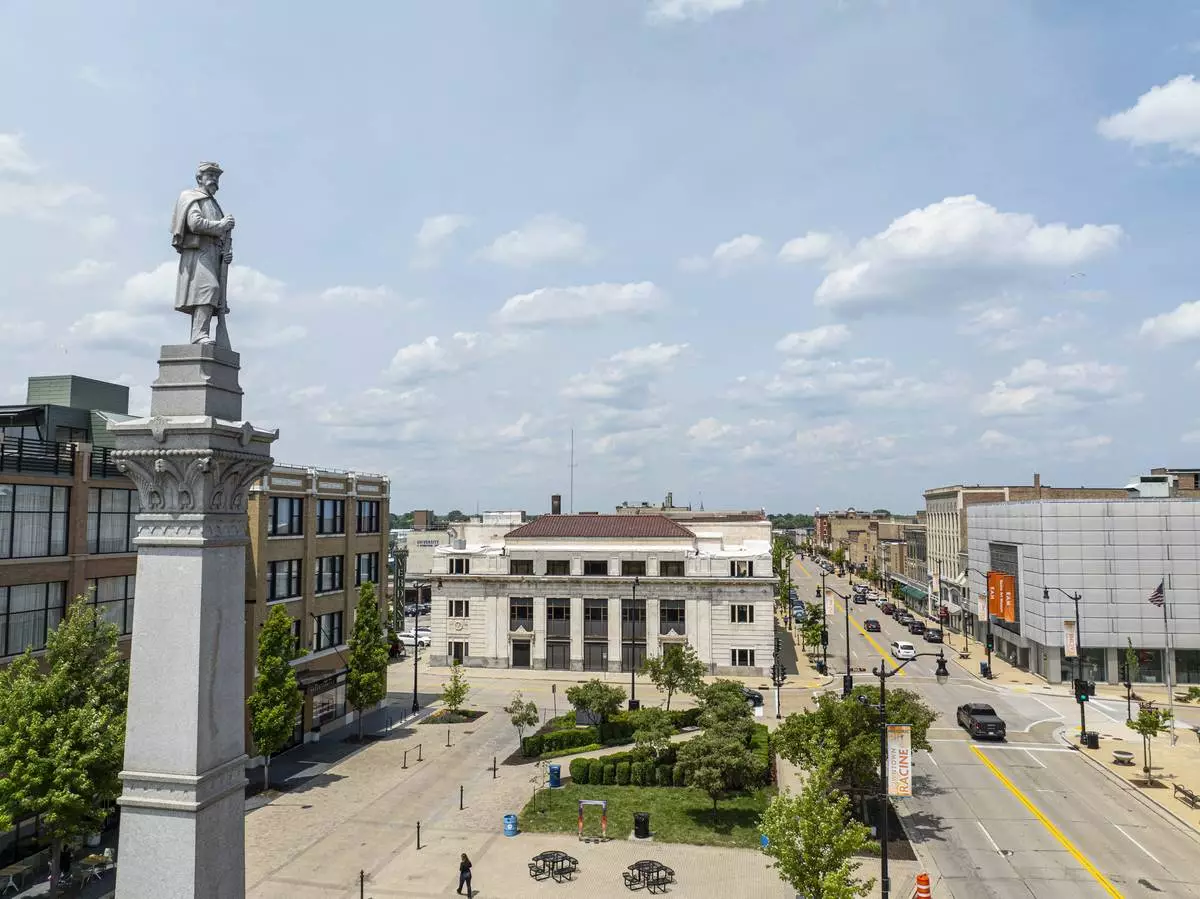
A general view of downtown Racine Wednesday, June 19, 2024, in Racine, Wis. (AP Photo/Jeffrey Phelps)
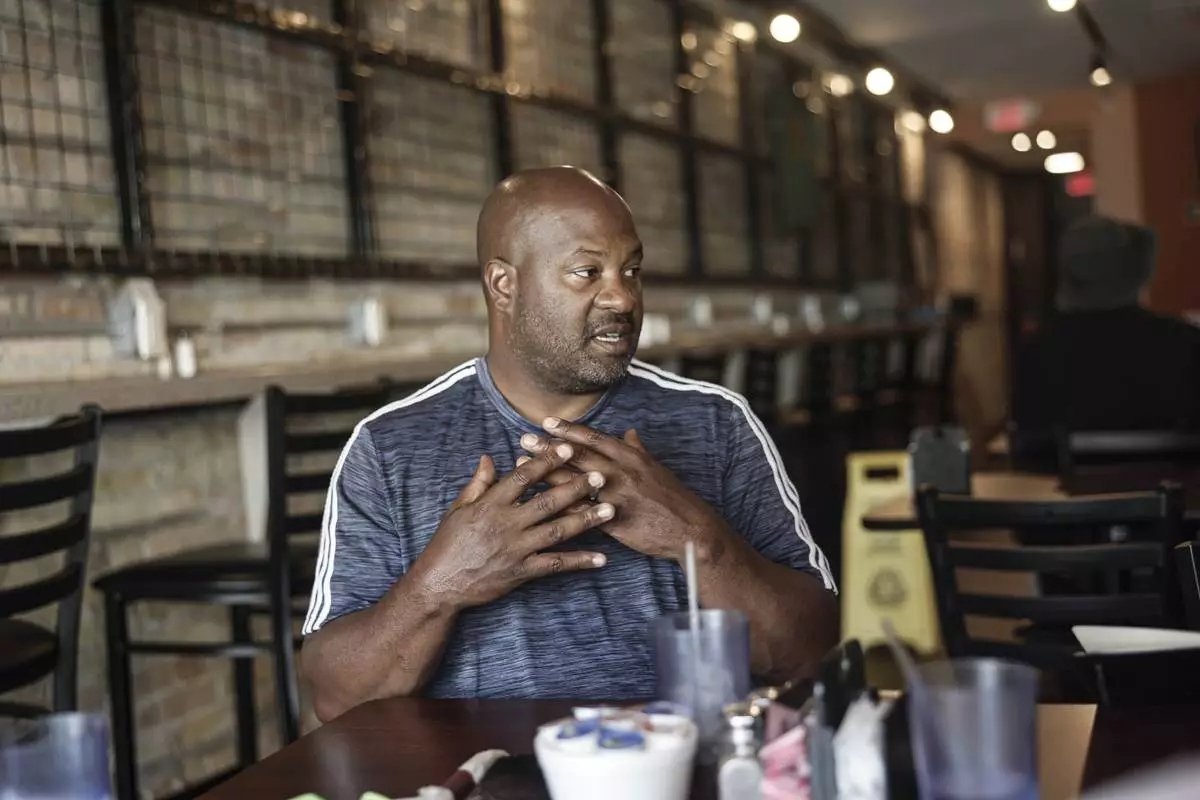
Marcus T. West speaks about the upcoming election Wednesday, June 19, 2024, in Racine, Wis. (AP Photo/Jeffrey Phelps)
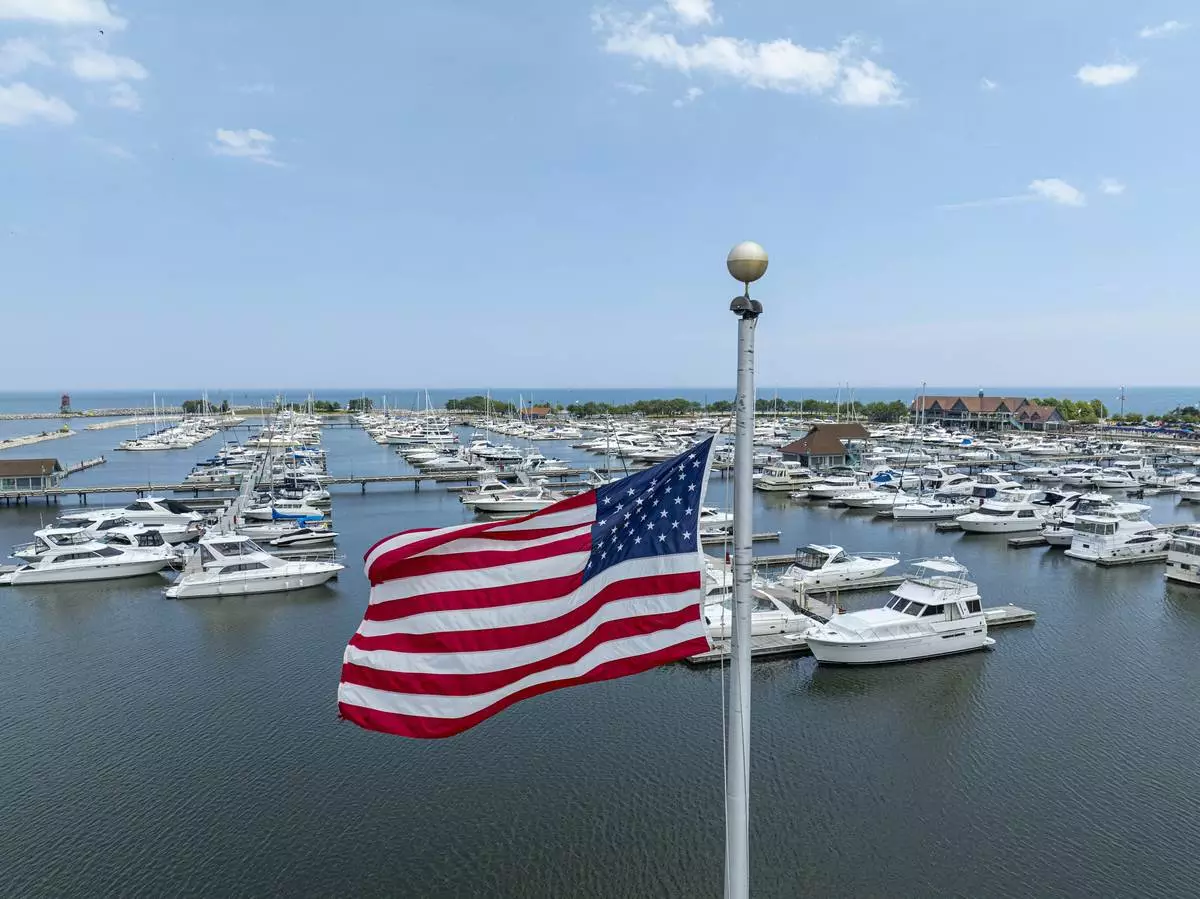
A general view of the marina Wednesday, June 19, 2024, in Racine, Wis. (AP Photo/Jeffrey Phelps)
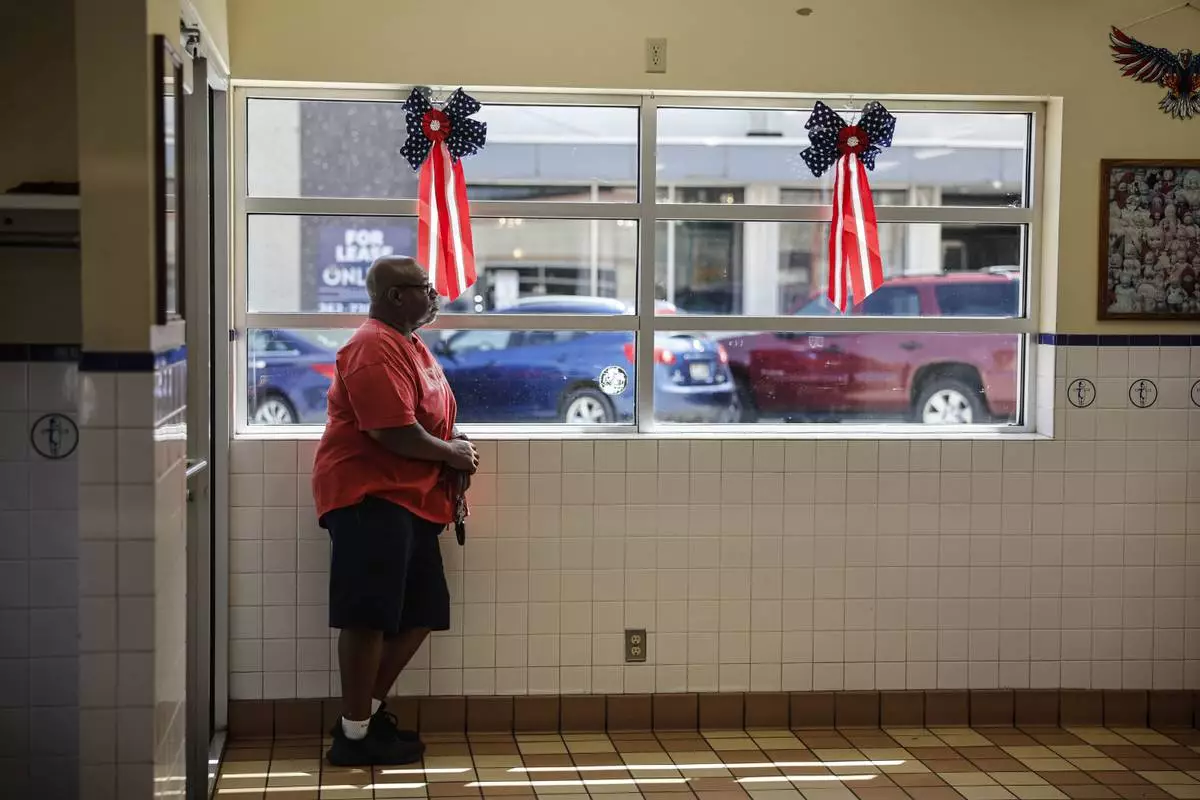
A man waits for his order inside a restaurant Wednesday, June 19, 2024, in downtown Racine, Wis. (AP Photo/Jeffrey Phelps)
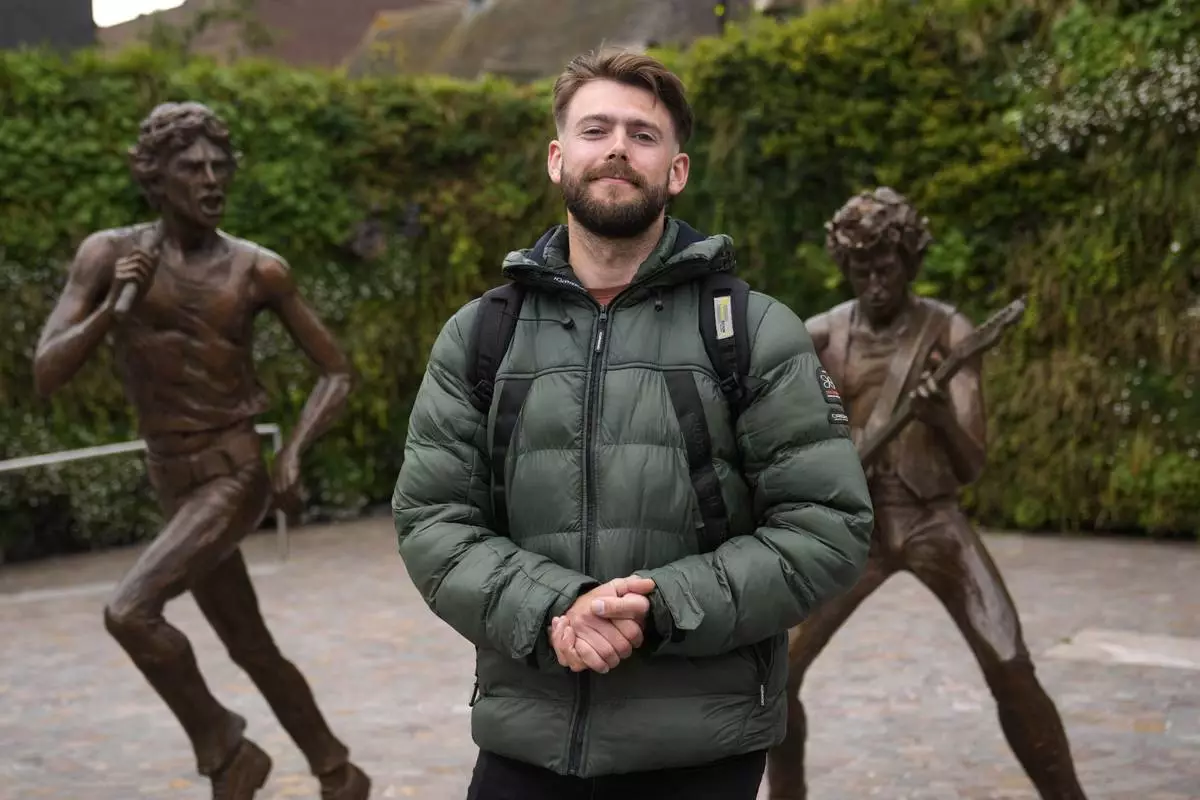
Harry Colville, 27, a construction worker, poses for a photograph during an interview in Dartford, London, Wednesday, June 12, 2024. Distrust saturates the campaign trails in the United States and Great Britain like the dense summer heat as each country, rooted in the Magna Carta, revolution and a "special relationship," hurtle toward democratic elections. Brits go to the polls July 4 -- as Americans celebrate their independence with barbeques and fireworks ahead of the U.S. presidential election in November. In both places, voters articulated a striking lack of optimism that the winners will represent their wishes. (AP Photo/Kin Cheung)
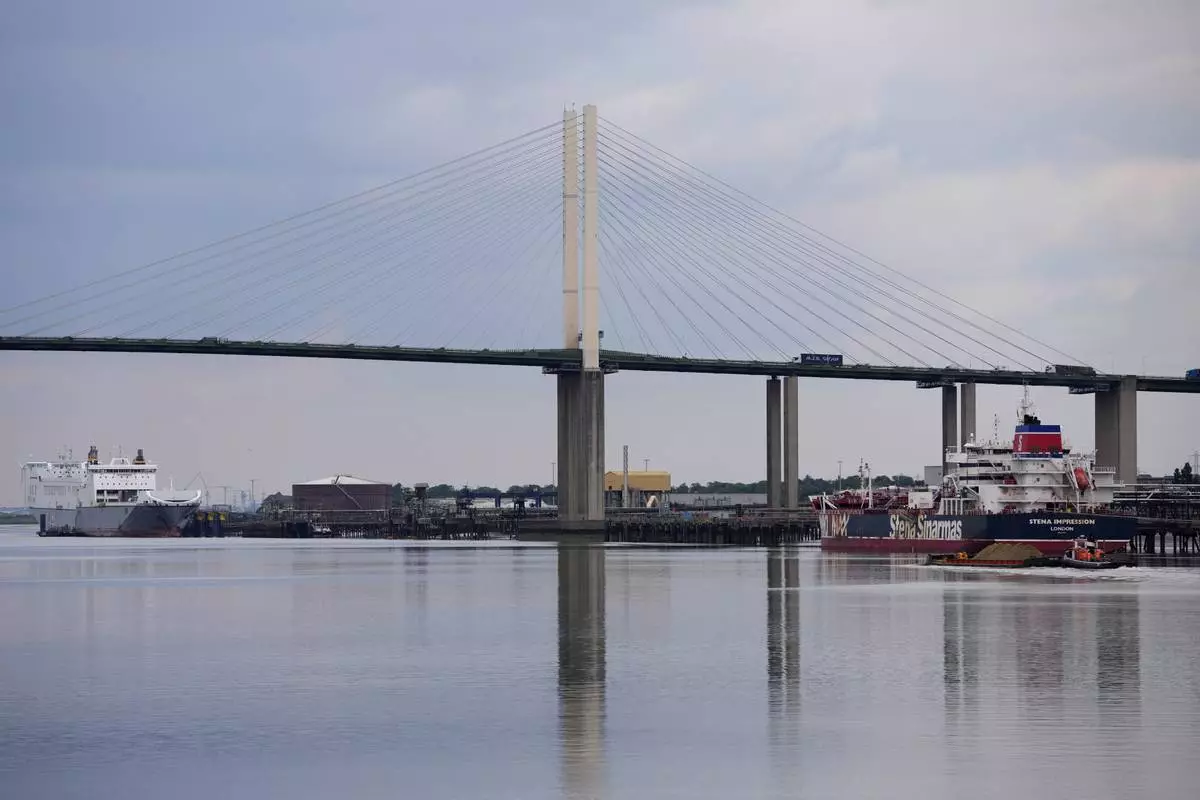
Dartford Crossing is seen in Dartford, London, Wednesday, June 12, 2024.Distrust saturates the campaign trails in the United States and Great Britain like the dense summer heat as each country, rooted in the Magna Carta, revolution and a "special relationship," hurtle toward democratic elections. Brits go to the polls July 4 -- as Americans celebrate their independence with barbeques and fireworks ahead of the U.S. presidential election in November. In both places, voters articulated a striking lack of optimism that the winners will represent their wishes. (AP Photo/Kin Cheung)

Jacqueline Richards, 77, poses for a photograph during an interview in Dartford, London, Wednesday, June 12, 2024. Distrust saturates the campaign trails in the United States and Great Britain like the dense summer heat as each country, rooted in the Magna Carta, revolution and a "special relationship," hurtle toward democratic elections. Brits go to the polls July 4 -- as Americans celebrate their independence with barbeques and fireworks ahead of the U.S. presidential election in November. In both places, voters articulated a striking lack of optimism that the winners will represent their wishes. (AP Photo/Kin Cheung)
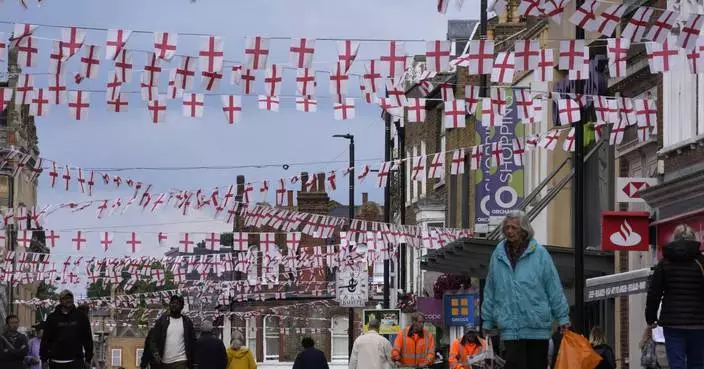
American and British voters share deep roots. In 2024, they distrust their own leaders, too
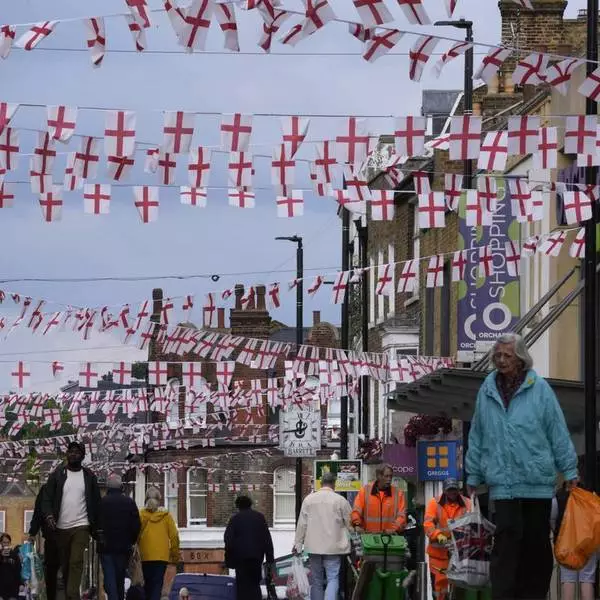
American and British voters share deep roots. In 2024, they distrust their own leaders, too
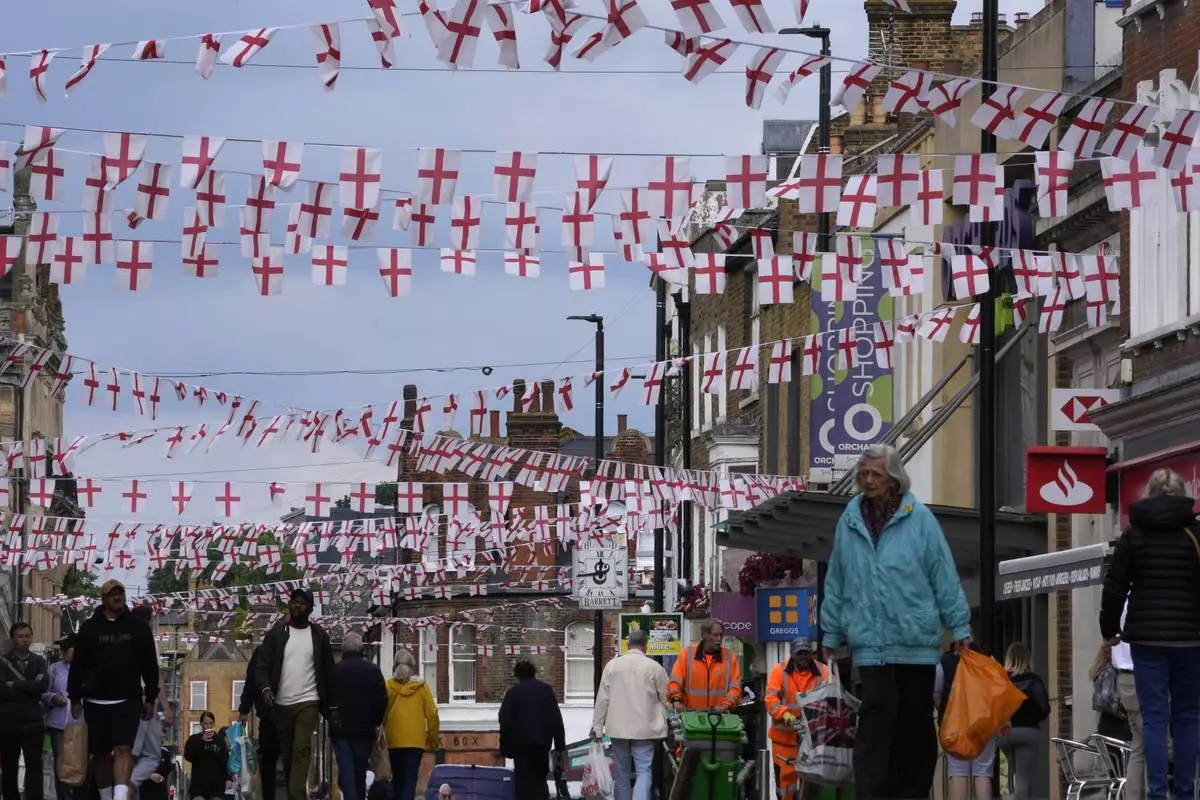
People walk alone the street in Dartford, London, Wednesday, June 12, 2024.Distrust saturates the campaign trails in the United States and Great Britain like the dense summer heat as each country, rooted in the Magna Carta, revolution and a "special relationship," hurtle toward democratic elections. Brits go to the polls July 4 -- as Americans celebrate their independence with barbeques and fireworks ahead of the U.S. presidential election in November. In both places, voters articulated a striking lack of optimism that the winners will represent their wishes. (AP Photo/Kin Cheung)





